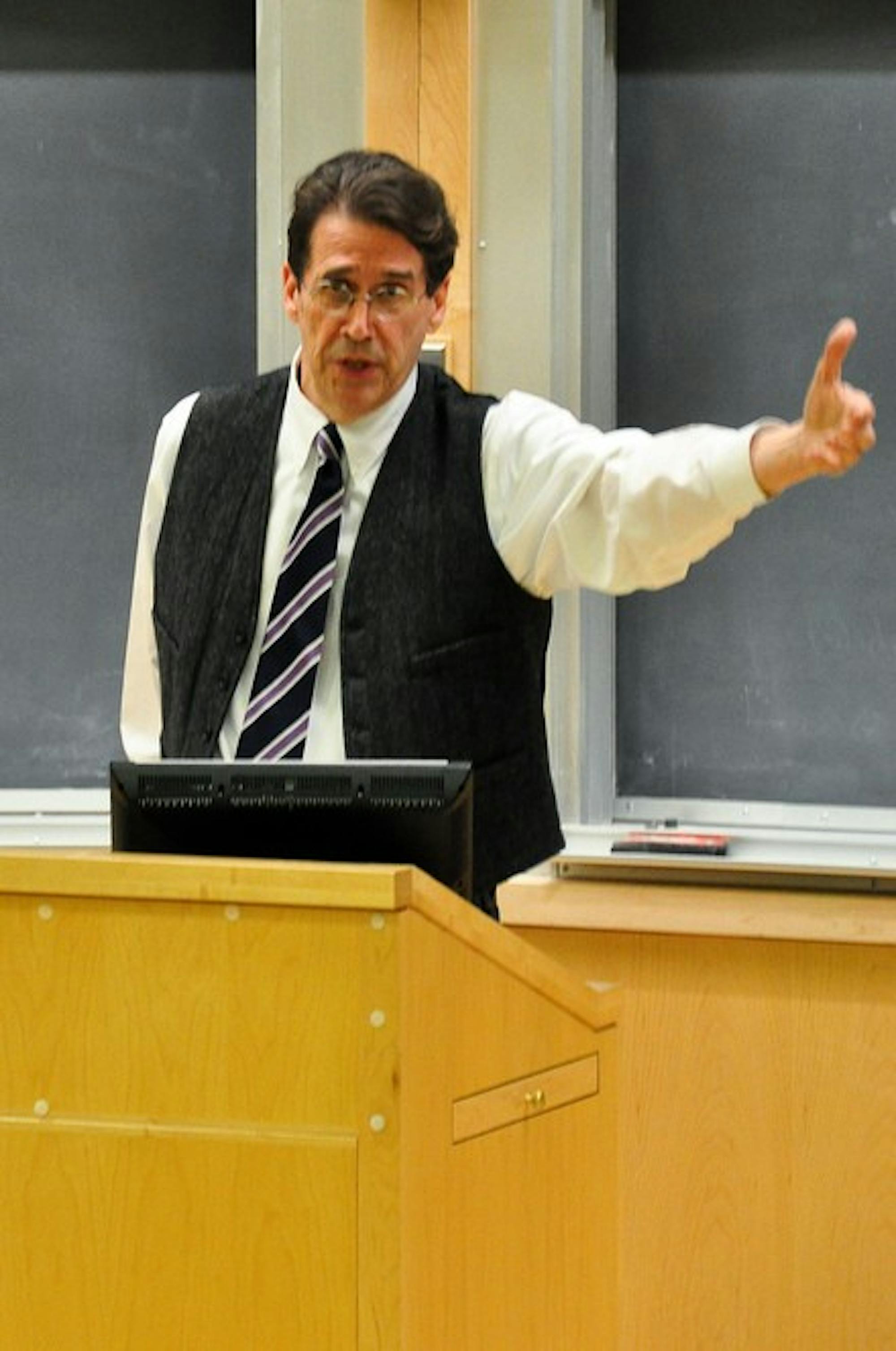European colonists were concerned with their nations' mercantilist policies and engaged the Indians in voluntary trade, he said. The colonies lacked a formal set of trade laws, and issues of governance and official trade regulations were first considered only after the establishment of the post-revolutionary government, Pommersheim said.
"In initial contact with native people, the goal was trade," Pommersheim said. "The main driving force... was this notion of trade as being primarily beneficial."
The Indian Commerce Clause of the U.S. Constitution gave Congress the power to regulate trade with Indian tribes through treaty-making, Pommersheim said. Pommersheim added that he believes the wording in the clause suggested that the U.S. government regarded the tribes as sovereign powers.
With changing commercial interests in the 1800s, however, the federal government began to reverse its recognition of tribal sovereignty, he said.
In the 1800s, U.S. interests shifted from trading with Native Americans to acquiring tribal lands as the importance of agriculture grew with the increasing immigrant population, Pommersheim said. Fueled by ideas of westward movement, the federal government approved treaties and Congressional acts with the primary intention of acquiring Indian lands, according to Pommersheim. The Dawes General Allotment Act, for example, enabled Congress to apportion plots of land to individual tribal members and open up the "surplus lands" for settlement by non-Indians, he said.
"Congress unilaterally abrogated treaties and unilaterally took this surplus land from the reservation," he said. "They no longer required tribal consent."
While the federal government did not initially assume power over reservation governance, the 1903 U.S. Supreme Court decision in the case of Lone Wolf v. Hitchcock gave Congress plenary power over Indian affairs, Pommersheim said. This decision further compromised tribal sovereignty because it enabled Congress to act as the "handmaiden for an expansionist society" by prohibiting Indians from challenging the ruling in court, he said.
With the "rebirth" of tribal sovereignty in the 1970s, tribes called for governance of not only their own people. but also of non-Indians who lived on their reservation, Pommersheim said. The question of who would govern non-Indian residents tribes, the federal government or state governments had remained unanswered since the allotment acts of the 1800s, according to Pommersheim.
"Indian governments began to take authority by making hunting and fishing regulations," he said.
In two U.S. Supreme Court Cases Oliphant v. Suquamish Indian Tribe in 1978 and Montana v. United States in 1981 the Court ruled that tribal groups did not have authority over non-Indian criminals, hunters and fishers on the reservation, he said.
"There has not been a single case in the modern era where the Court has upheld tribal authority over non-Indians," Pommersheim said. "When tribes try to use their sovereignty to govern people on their land, they are being told increasingly and uniformly that they can't do it."
While modern-day tribes are still "stymied" in exercising their sovereignty, especially in dealing with non-native people on their reservations, Pommersheim said he believes that "the present is a positive period in Indian country."
Pommersheim said he believes that a Constitutional amendment would be necessary to address the current situation of Indian sovereignty, although he said its passage would be a "far-fetched" idea.
"As tribes engage in more and more sovereign activities in the modern era, the only way those activities can be respected is through a change in the fabric of federal law that deals with Indian tribes," Pommersheim said.




